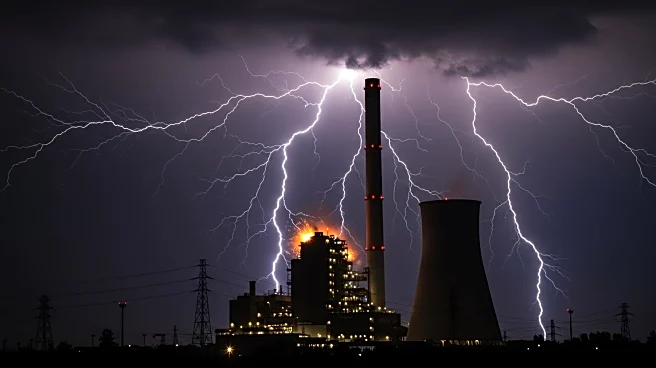What's Happening?
The Israeli Navy has reportedly conducted strikes on a power plant in Sanaa, the capital of Yemen, leading to explosions and a temporary power outage. According to local media and Reuters, the Haziz power plant in the southern part of Sanaa was targeted, resulting in at least two explosions. Mashal al-Rifi, CEO of the Sanaa Electric Corporation, confirmed the attack and the subsequent power disruption. Houthi political bureau member Hazam al-Asad criticized the strike, claiming it targeted civilian facilities such as electricity and water. The Israeli Defense Forces (IDF) stated that the strike was aimed at an energy infrastructure site used by the Houthi regime, conducted from a distance of 2,000 kilometers.
Why It's Important?
This development highlights the ongoing tensions in the Middle East, particularly involving Israel and the Houthi forces in Yemen. The strike on a civilian infrastructure like a power plant underscores the potential for escalating conflict and the impact on civilian life, as essential services are disrupted. The incident may further strain relations between Israel and regional actors, potentially drawing international attention and criticism. The targeting of energy infrastructure also raises concerns about the humanitarian implications for Yemeni civilians, who are already facing significant challenges due to the ongoing conflict in the region.
What's Next?
The aftermath of the strike may lead to increased diplomatic tensions and potential retaliatory actions from the Houthi forces. International bodies and neighboring countries might call for investigations or condemnations, seeking to de-escalate the situation. The incident could also prompt discussions on the protection of civilian infrastructure in conflict zones and the broader implications for regional stability. Monitoring the responses from major stakeholders, including the United Nations and regional powers, will be crucial in understanding the potential shifts in Middle Eastern geopolitics.









